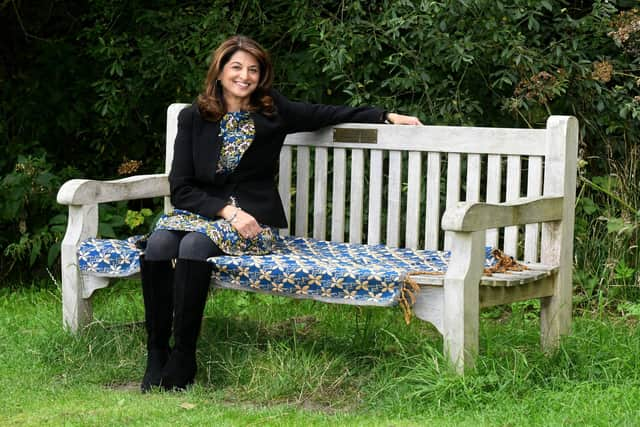Why much more needs to be done to support older bereaved carers - Daxa Patel
I cared for my dad, though many did not see me as his carer because I was an unpaid carer but they saw the lady I was paying to help me, as his ‘carer’.
I was also a trustee for Carers Leeds for six years until last March and I have written a book on my personal journey of grief following the death of my dad.
Advertisement
Hide AdAdvertisement
Hide AdI don’t fit the age group but what I have been through gives me a perspective I would not have had otherwise.


My research on unpaid care by age, sex, and deprivation in England and Wales, Census 2021, on the Office for National Statistics (ONS) revealed some concerning data.
Before I dive into this, I want to touch on the ridiculous amount we pay by way of carers allowance. It is an insult.
The wages paid to carers working in the care, and nursing sector, is often barely above the minimum wage, so as a society, we simply do not care for those who care.
Advertisement
Hide AdAdvertisement
Hide AdWhen you look at the data in depth you see there are demographic variances.
In England females aged between 55-59 provided most unpaid care, which is 19.9 per cent, and men aged between 60-64, 13 per cent, were likely to provide unpaid care.
Females were statistically significantly more likely to provide unpaid care then males aged between 75-79 years but, from the ages of 80 years onwards, males were statistically significantly more likely to provide unpaid care.
In both males and females, the older age groups provide the highest hours of unpaid care per week that is 50 hours or more per week care, and males in the age group of 80-84 and 90 years plus, and over, were significantly more likely to provide 50 hours or more unpaid care than women.
Advertisement
Hide AdAdvertisement
Hide AdThe pandemic saw a significant rise in excess deaths. Post-pandemic there will also be a significant rise of unpaid older carers, especially men.
Unpaid older carers are invisible to wider society. They are also unlikely to seek help partly, out of pride or because they do not want to come across as if they are not coping.
There is also a matter of honour and commitment. Couples who have been together in a partnership of say, 50 years plus will want to care for their spouse, or partner.
There are charities like Carers UK and Cruse, and others, who do good work to support bereaved carers. In our city, Carers Leeds does a marvellous job too.
Advertisement
Hide AdAdvertisement
Hide AdHowever, it should not be down to these charities alone to support these souls, it is down to us all and we should form a ring of support to help them when they need us the most.
As someone who walked the journey of grief, I know in my favour I was not too old to restart my life.
It is not so easy for older people. For older people the journey of grief is more hard, and can potentially break their spirit.
There can be a huge impact on their health. I have heard of some who were not able to leave their homes as they felt utterly lost and had lost a sense of themselves having been a carer for so long.
Advertisement
Hide AdAdvertisement
Hide AdThey may face difficult financial decisions and they may feel a sense of loss of their role as a carer.
When a carer takes on the role of caring for a family member, they often disconnect themselves from their primary, and secondary connections. Carers in this context are the unpaid carers.
A loss of purpose to live can be profound, having lost a long-standing partnership.
So what is our role? Be there for them and let them know you are there and hold their hand if they give you permission.
Advertisement
Hide AdAdvertisement
Hide AdDo not patronise them by saying they did a good job by caring for their loved one and do not tell them to be strong. Take food around and actively listen, don’t listen to reply.
Grief is as unique as our DNA and as unique as the relationship we have with the person we lost.
The simple act of just calling them in person or by telephone will let them feel they are not alone. Grievers need to be respected, heard, and acknowledged.
Then the next stage is to make them feel valued by encouraging them to engage with life.
Advertisement
Hide AdAdvertisement
Hide AdTalking to the GP is an option but it should not be down to the bereaved to ask for help, we should make ourselves available to help.
Almost 10 years ago I found myself at a group meeting for the bereaved at Leeds Cruse where I met a lady in her late 70s. She lost her husband the same day I lost my dad.
We both realised the group meeting was not for us, but we exchanged addresses. All these years later, we still write to one another at least once a month. I am thankful for this connection.
Daxa Manhar Patel is a solicitor, author and executive coach.